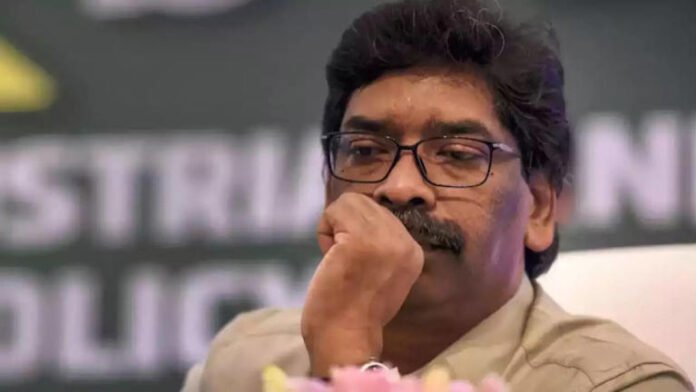The Supreme Court of India has rejected the plea for interim bail submitted by Hemant Soren, the former Chief Minister of Jharkhand. The rejection marks a critical juncture in the ongoing legal battles faced by Soren, who has been embroiled in a series of legal troubles.
Hemant Soren, a prominent political figure in Jharkhand and a key leader of the Jharkhand Mukti Morcha (JMM), has been under the scanner for multiple allegations. The charges primarily revolve around corruption and misuse of power during his tenure as Chief Minister. The allegations have prompted several investigations, bringing intense scrutiny and legal challenges.
The plea for interim bail was seen as a crucial attempt by Soren to secure temporary relief while contesting these allegations. His legal team argued that the charges were politically motivated and lacked substantive evidence. They emphasized the necessity for interim bail to allow Soren to prepare a robust defense without the constraints of detention.
The Supreme Court’s rejection of Soren’s plea came as a blow to his defense strategy. The bench, led by Chief Justice D.Y. Chandrachud, meticulously reviewed the arguments presented by both sides. The prosecution contended that granting interim bail could potentially hinder the investigation and affect the judicial process. They underscored the seriousness of the charges and the need for Soren to remain available for questioning.
In its judgment, the Supreme Court highlighted the principle of equality before the law and the importance of maintaining the integrity of the judicial process. The bench noted that interim bail should not be granted in cases where there is a substantial risk of interference with the investigation or if the accused might abscond. Given the gravity of the allegations against Soren, the court concluded that his plea for interim bail could not be justified at this stage.
The rejection of Soren’s plea has significant political ramifications in Jharkhand. As a key leader of the JMM, Soren’s legal troubles have already cast a shadow over the party’s activities and its political standing. The denial of bail is likely to intensify the challenges faced by the JMM in maintaining its influence and operational capabilities.
Opposition parties have seized upon the situation to criticize the JMM and its leadership. They argue that the rejection of bail is indicative of the seriousness of the charges and a testament to the necessity of holding public officials accountable. The ruling also adds fuel to the ongoing political rivalry in the state, with various factions seeking to capitalize on Soren’s predicament.
From a legal perspective, the Supreme Court’s decision underscores the judiciary’s stringent stance on corruption and the misuse of power by public officials. It reflects a broader commitment to ensuring that allegations of corruption are thoroughly investigated and that those in positions of power are held accountable.
For Hemant Soren, the path ahead is fraught with legal challenges. His legal team will likely focus on preparing for the forthcoming trials and exploring other legal avenues to contest the charges. The rejection of interim bail means that Soren will have to navigate these challenges while potentially being in custody, which complicates his defense strategy.
The public and media reaction to the Supreme Court’s decision has been mixed. Supporters of Soren view the rejection as a setback but remain hopeful that he will be able to prove his innocence in the long run. Critics, on the other hand, argue that the decision is a step towards justice and accountability.
Media coverage has been extensive, reflecting the high-profile nature of the case. Analysts have been dissecting the implications of the ruling, both for Soren personally and for the political landscape in Jharkhand.
The Supreme Court’s rejection of Hemant Soren’s plea for interim bail is a pivotal moment in his ongoing legal battles. It highlights the judiciary’s rigorous approach to allegations of corruption and serves as a reminder of the complexities faced by public officials accused of serious misconduct. As the legal proceedings continue, the case will remain in the spotlight, influencing both the political dynamics in Jharkhand and the broader discourse on accountability and justice in India.

